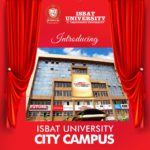Studying and Exam Prep: What exactly are they, and how are they different?

It’s useful to distinguish the act of ‘studying’ from the process of ‘exam prep’ in order to home in on how to do each of them optimally. In short, while they certainly overlap both in terms of methods and mental processes involved, they differ in that studying generally emphasizes ‘taking in’ information and organizing, synthesizing and solidifying knowledge. On the other hand, exam prep involves preparing to demonstrate your knowledge and expertise by anticipating and practicing the kinds of questions and problems you’re likely to encounter on the exam. Think of finals prep as a dress rehearsal for a performance or a scrimmage for an athletic contest—practice as close to the authentic task as possible. Studying can be thought of as learning the lines in the script or the notes in the piece of music or your (and the other) team’s plays, exam prep is putting it all together in a real performance.
Exam Prep
For the most effective exam prep practice DOING the target task and component skills. Gain accuracy, speed, and fluency to meet the distinct demands of timed conditions encountered on exams by deliberately practicing for them. Practice under authentic test circumstances—no supports such as notes or solutions (unless they are permitted on the exams) and aim for limiting time and working with urgency. Anticipate and prepare for exam-level types of problems or questions, and if possible, specific ones. Using past exams is ideal (assuming they were made by the same professor teaching the same curriculum), but you may need to manipulate p-set or quiz problems to make them more difficult by increasing their complexity and number of parts.
What exam prep is not is simple review, going over, merely solidifying knowledge to make it memorable. This prepares you to recall knowledge, but not to apply it creatively, to solve problems, make arguments, etc. Many Princeton exams will require you to determine what, precisely, the problem or question is asking and then figure out an approach to answering it. Interpreting unusual questions and figuring how to answer them under timed conditions is the hardest part of what you are preparing yourself for and it entails far different kinds of thinking or mental processes than mere recall.
Practice application of knowledge and skills (e.g. problem-solving, analysis, explanation, argumentation, critique) and ‘transferring’ these to a variety of situations or types of problems.
Doing so not only prepares you to solve unfamiliar problems it also builds your confidence that you CAN figure out how to tackle novel, never-before-seen questions.
Studying
Studying, too, to be most efficient should involve not merely ‘going over’ or reviewing course materials. Studying should be more active, even interactive, and include you creating study materials that can be returned to multiple times. So, as you review material (on your own or with others) annotate, organize, fill-in, and make connections among what you are learning and, where possible, reduce down material to its essence for future study.
In terms of mental processes, studying should include active (re-)organization of material, categorizing and prioritizing what you are learning, and looking for patterns as well as making connections and linkages among course content. Both studying and exam prep should intentionally include identifying and filling in gaps in your knowledge because it’s easy to convince ourselves we ‘know everything’ when, in fact, we’ve only mastered that which we have focused on. Ensuring you have a comprehensive, easy-to-study set of course materials (e.g. notes, handouts, slides, etc.) is crucial. In problem-solving courses, studying should involve clarifying procedures, problem solving processes, and skills. Consider writing out (briefly) steps involved, shortcuts, common errors or ‘trap doors’ (tricky problems or questions), and any other cues and clues that help you solve different types of problems. Lastly, but most importantly, studying should include you striving to grasp the ‘big picture’, that is building a coherent understanding of course material in total and how individual concepts, etc. relate to one another and fit into the whole, and, crucially, how the whole (i.e. ‘big picture’) contextualizes individual concepts, etc. One of the most common observations made by faculty about students learning and exam performance is that students are not “getting the big picture”. Grasping the big picture makes all studying and exam prep processes more meaningful and efficient, so step back from the particulars and map out the design of course content.



